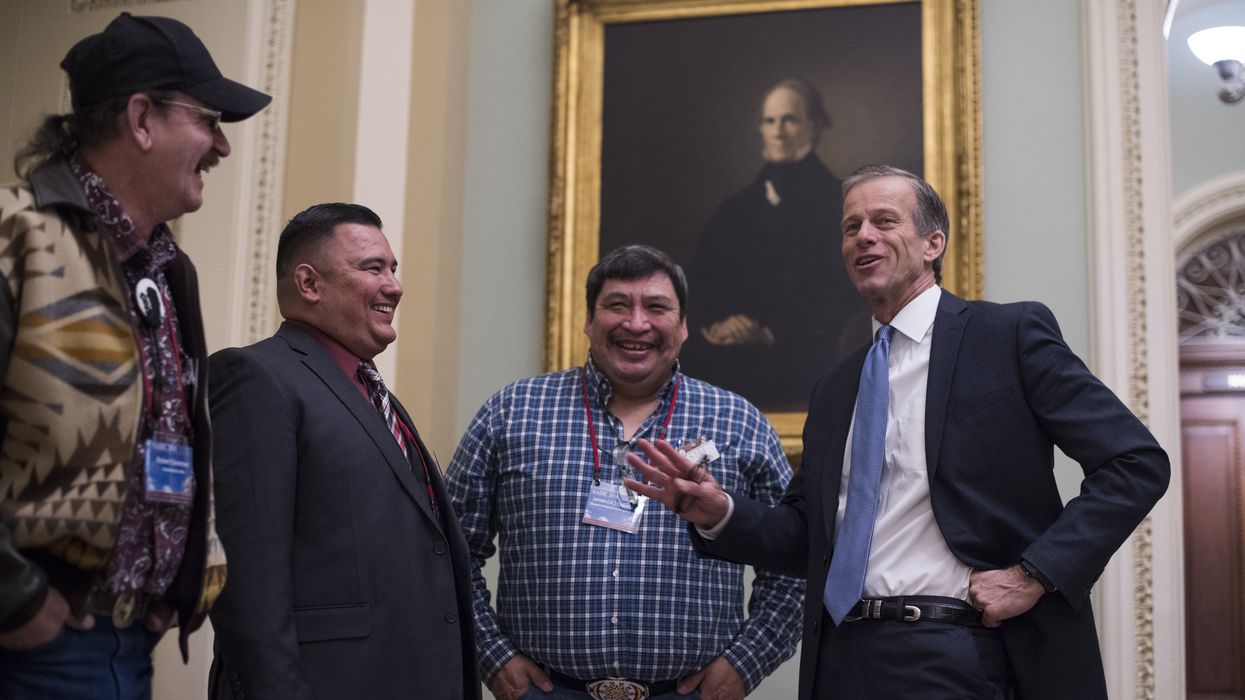Daley-Harris is the author of “ Reclaiming Our Democracy: Every Citizen’s Guide to Transformational Advocacy ” and the founder of RESULTS and Civic Courage. This is part of a series focused on better understanding transformational advocacy: citizens awakening to their power.
Last month I received an email from a major gun safety organization. It read: “[We hosted] another lobby day on Capitol Hill advocating for Congress to pass more gun safety laws. … Our organizers held 23 meetings.” Yikes! Twenty-three meetings out of 535 congressional offices. They missed 96 percent of offices.
The email went on to say, “... and [we] did over 200 drop-ins to the offices of elected officials!” A drop-in is an unscheduled visit to a congressional office, usually resulting in a brief conversation with the receptionist and materials being left behind. In a few cases a low-level staffer might come to the reception area and briefly talk to the unexpected visitors.
One key aspect of transformational advocacy is expansion, building chapters and bringing new people in. Another is the importance of relationships: relationships with other chapter members, with elected officials and their staff, and with the media. Mark Reynolds, former executive director of Citizens’ Climate Lobby, said it this way: “We’re betting the farm on relationships.”
But that’s not what most organizations do. Most organizations bet the farm on e-blast relationships, which aren’t real relationships at all. The gun safety group’s 23 scheduled congressional meetings is a step up from e-blast relationships, but only barely, because there were so few of them.
In a June 20 essay in The New York Times titled, “Why Activists Keep Failing the Causes That Fire Them Up,” Sarah Isgur discusses activists “accepting and even preferring short-term, sugar-high victories that disappear as quickly and easily as they came about.” Isgur reviews executive orders on issues from expanding DACA to cover additional Dreamers to banning bump stocks, only to see those victories overturned by the next president or the Supreme Court. Isgur concludes that it’s true that getting change through Congress is hard:
“But that’s how the legislative process works. … Congress isn’t broken; there are just not enough people willing to force it to work.
“The fact that many activists are content with fleeting executive actions is unforgivable. These actions are often worse than getting nothing at all. At least getting nothing would keep the pressure on Congress. Getting nothing would bring more and more people to help push against the closed doors. But when activists declare victory — however hollow — they give permission for everyone to move on. They let Congress off the hook. They give the president credit where none is due. And they fail at their most important job, which is to force lasting change for the people who need it most.”
As I previously wrote, 1,000 CCL activists from all 50 states had 442 congressional meetings, down from the more than 500 Capitol Hill meetings they had before Covid. But they’ve been honest about how chapters have shrunk, merged or disappeared during Covid, something that’s happened to many organizations that are built on face-to-face meetings.
As a result, CCL started a “Back to basics on rebuilding and launching chapters” campaign. I joined one of the calls for activists who were relaunching those chapters. One of the activists said to a colleague, “Congratulations on restarting the Fayetteville, Arkansas, chapter, and they’ve already had their first meeting after the launch.”
Knowing that eager participants at a chapter launch workshop often lose steam and don’t make it to the first meeting after the launch, I asked how many attended the first meeting, expecting to hear five or six.
“There were 24 people at the first meeting,” they said.
That’s what you see in an organization committed to delivering transformational advocacy: recruitment, not just to build an e-blast list, but to form chapters with real people talking to real people and building relationships.
Some would say that the actual work begins after the chapter is launched, and that work includes Reynolds’ reminder: “We’re betting the farm on relationships.”




















